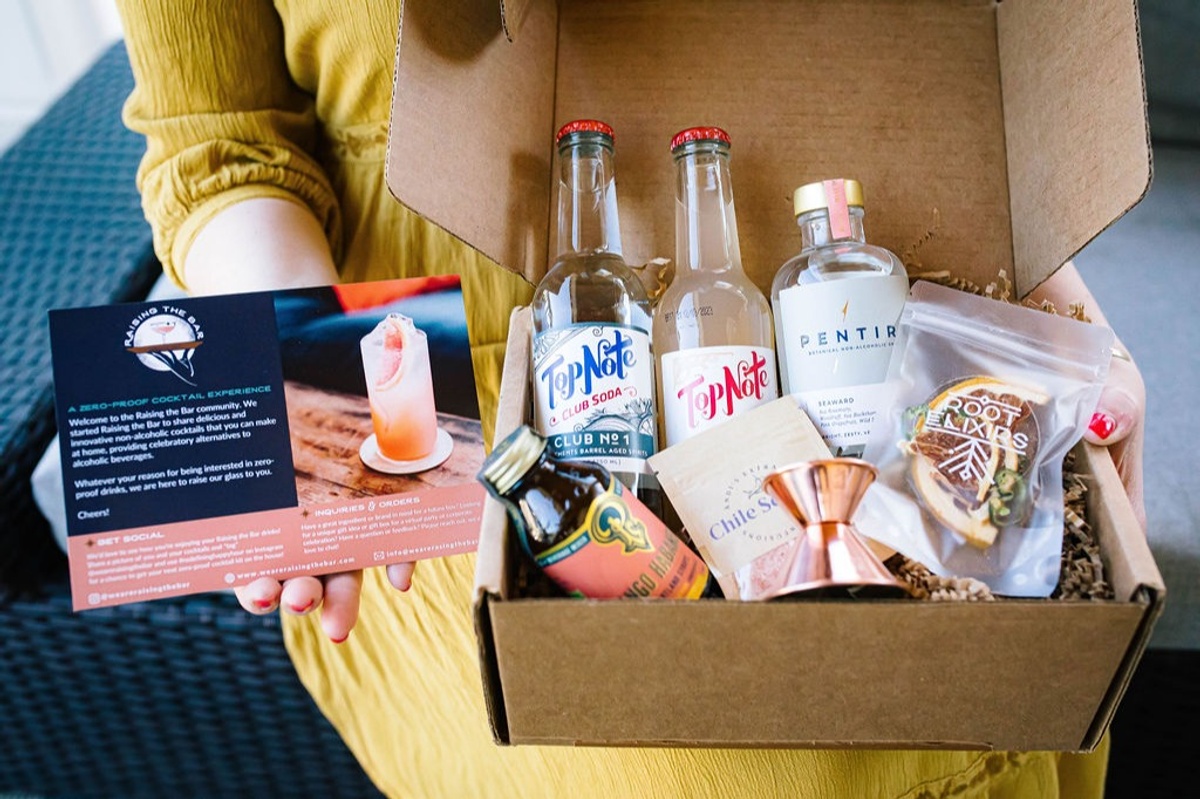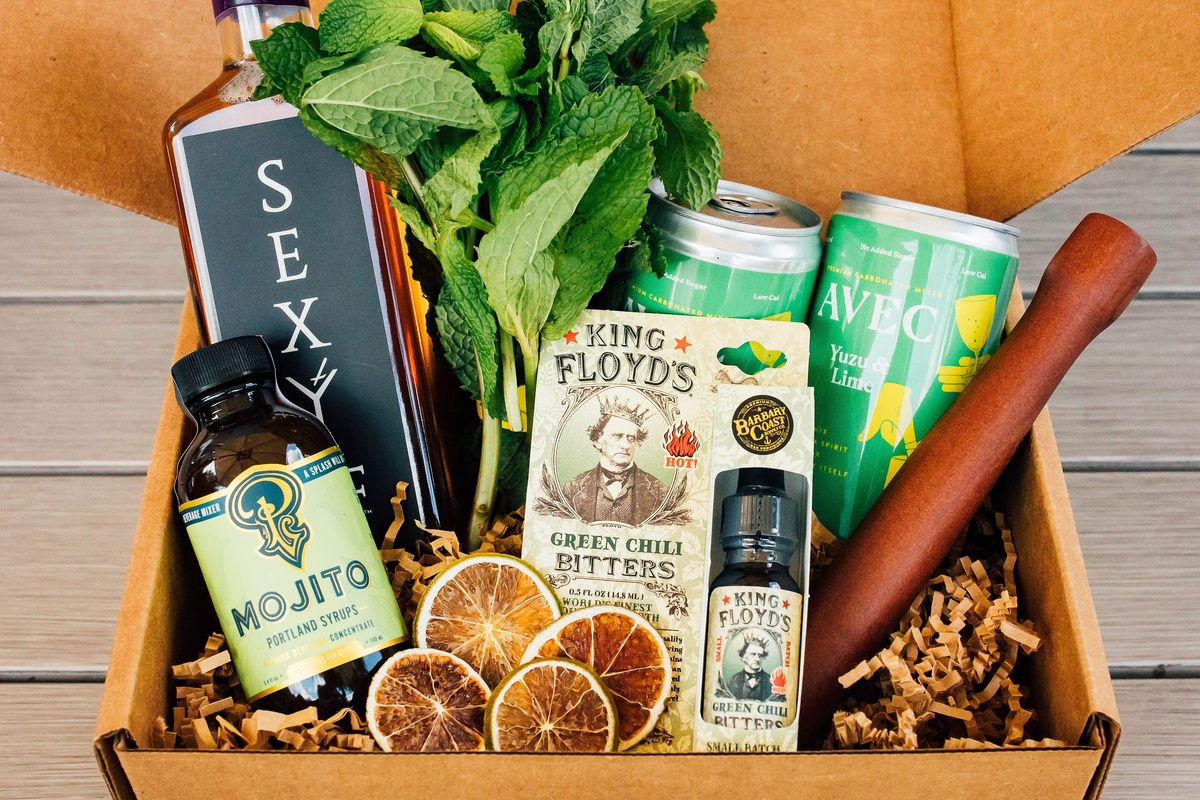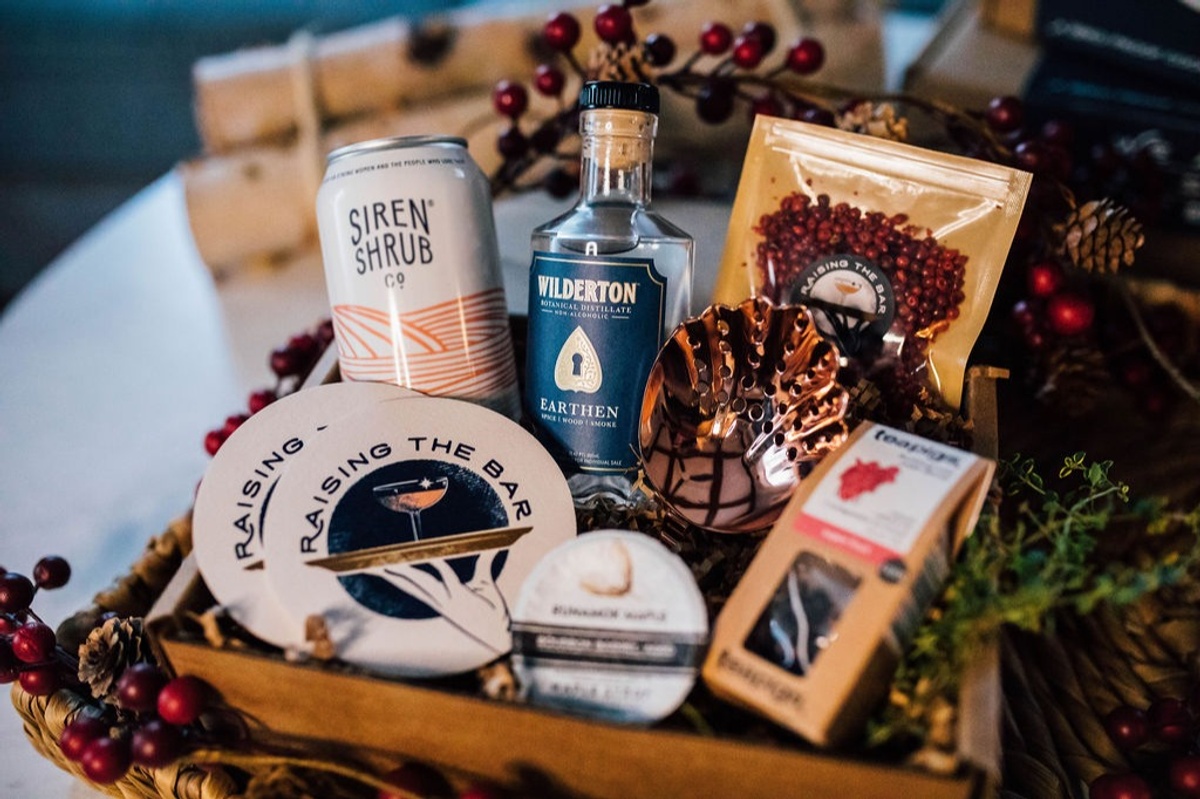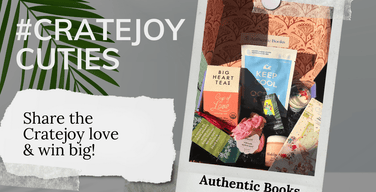What Exactly Is A “Mocktail”?
Updated by Taylor Tobin
Mocktails have a huge presence on bar menus (and beverage TikToks) these days, but what exactly defines a mocktail ? Is it really as simple as “any fancy drink with no booze in it” or does a proper mocktail need to follow a particular formula or set of rules? We consulted mocktail expert and Cratejoy box curator Abbie Romanul of Raising the Bar to help answer these burning questions.

What is a “mocktail”?
In the simplest terms, a mocktail is a mixed drink that includes no alcohol. However, Romanul takes that definition several steps further, telling us that a** **mocktail is an elevated and celebratory drink that is delicious, well-balanced, and something you'd enjoy sipping on—not chugging—just as you would a cocktail.
Romanul’s definition gets to the heart of what makes mocktails so special and so widely beloved. Not every cocktail is a craft cocktail, and to gain that title, the drink must be made with high-quality ingredients, thoughtful preparation, and balanced flavors. Think of a mocktail as the non-alcoholic version of a craft cocktail, but made with every bit as much attention to detail.

Where did the “mocktail” term come from?
Mocktail—a mash-up of “mock” and “cocktail”—is far from a new term. In fact, ** Merriam-Webster **claims that the earliest recorded use of mocktail happened in 1916! Romanul appreciates the term mocktail for its instantly-recognizable nature. “I embrace it! I feel that the more attention offered to alcohol-free alternatives, the better, and mocktail does seem to be the most generally-understood term.”
That said, not all beverage pros and mocktail drinkers view this term as a positive one, with the presence of the word “mock” serving as the core issue. Some people interpret it as dismissive and a suggestion that no-alcohol cocktails shouldn’t be taken as seriously as their alcohol-filled counterparts. Romanul acknowledges that the term has a mixed reception. Her preferred alternative? Calling the drinks zero-proof cocktails. If mocktail isn’t your favorite way to refer to these flavorful libations, then other possibilities include no-ABV cocktail, alcohol-free cocktail, or even the old-school virgin cocktail.

How can you make the best-possible mocktail?
Much like a regular cocktail, the key to a fantastic mocktail is balance, and Romanul has a fail-safe plan for a mocktail with depth, complexity, and tons of whimsy. “My general rule of thumb is a little sweet, a little tart, and a little bubbly.” An easy example of Romanul’s formula involves a generous squeeze of lemon, a flavored simple syrup, and some club soda . “The tartness of the lemon evens out the sweetness of the syrup, and the club soda provides a lively fizz that makes the drink more engaging.”
When we asked Romanul for her top mocktail-making advice, she urged us to avoid making a drink too sweet. “When you take the alcohol out, you need enough sour and bitter and salty to balance out the sweet,” she notes.
On the topic of ideal balance, Romanul says that simply removing the alcohol from an existing cocktail—like, for example, making a cosmopolitan with just cranberry juice and lime juice—isn’t the best idea, since the alcohol plays a flavor-related role in the drink rather than simply a tipsiness-inducing role. Instead, she insists that a great mocktail comes from “intentionally crafting an alcohol-free cocktail from the ground up” and taking the time to carefully choose your elements of sweetness, sourness, bitterness, and saltiness.
If you’re determined to capture the flavors of a favorite classic cocktail but want to ditch the booze, then a zero-proof spirit could be a perfect solution. These products mimic the flavor and texture of popular liquors like vodka, gin, and whiskey, but include no alcohol content. Romanul recommends zero-proof spirits because they can add “a whole additional depth and dimension of flavor” to a mocktail.















